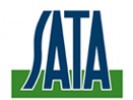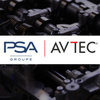Filter interviews by
Keihin India Manufacturing Production Engineer Interview Questions and Answers
Keihin India Manufacturing Production Engineer Interview Experiences
1 interview found
I was interviewed in Mar 2022.
(2 Questions)
- Q1. This job urjent for me
- Q2. Mechanical engineering was need to provide this job and to be good great experience to me
Interview Preparation Tips
- Mechanical Engineering
- Company Profiling
- Team Management
Top trending discussions






Interview questions from similar companies

An aptitude test is designed to assess an individual's ability to perform certain tasks or react to a range of different situations. These tests are often used by educational institutions and employers to evaluate potential candidates' skills, talents, and potential for success in a specific role or academic program. Here are some key details about aptitude tests:
1. **Purpose**: Aptitude tests are used to measure a variety of skills, including logical reasoning, verbal ability, numerical skills, and spatial awareness. They help to identify strengths and weaknesses and predict future performance.
2. **Types**:
- **Verbal Reasoning**: Assesses understanding and reasoning using concepts framed in words.
- **Numerical Reasoning**: Tests ability to work with numbers, including basic arithmetic, data interpretation, and logical problem-solving.
- **Abstract Reasoning**: Evaluates the ability to identify patterns, logical rules, and trends in new data.
- **Mechanical Reasoning**: Measures understanding of mechanical and physical principles.
- **Spatial Reasoning**: Assesses the ability to visualize and manipulate objects.
3. **Format**: Aptitude tests can be multiple-choice, true/false, or involve practical problem-solving tasks. They are often timed, with specific sections dedicated to each type of reasoning.
4. **Preparation**:
- **Practice Tests**: Taking practice tests helps familiarize with the format and types of questions.
- **Study Guides**: Reviewing basic concepts in mathematics, grammar, and logical reasoning.
- **Skills Development**: Enhancing skills through puzzles, reading, and other related activities.
5. **Usage**:
- **Recruitment**: Employers use aptitude tests to screen job applicants and find the best fit for a role.
- **Education**: Schools and colleges use these tests for admissions, placement, and identifying areas for student improvement.
- **Career Counseling**: Helps individuals understand their strengths and areas for improvement, guiding career choices.
6. **Scoring**: Scores are typically presented as percentiles, showing how a test-taker compares to a norm group. Higher scores indicate better performance relative to the norm group.
If you have specific questions about a certain type of aptitude test or need preparation tips, feel free to ask!
(2 Questions)
- Q1. Tell me about yourself.Tip: Provide a brief overview of your professional background, focusing on experiences relevant to the job you're applying for. Highlight your key achievements and skills.
- Q2. Know YourselfAssess and interest.
Interview Preparation Tips

Production Engineer Interview Questions & Answers
Seoyon E-hwa Automotiveposted on 26 Oct 2024
I applied via Approached by Company and was interviewed in Sep 2024. There was 1 interview round.
(1 Question)
- Q1. Machine related questions Ans Injections moulding horizontal type machine handle

Production Engineer Interview Questions & Answers
Sekisui Dljm Moldingposted on 16 Jan 2024
I applied via Naukri.com and was interviewed in Dec 2023. There was 1 interview round.
(3 Questions)
- Q1. How to handle shift ,processor , defects ,trouble shooting, so many questions
- Q2. Defets related questions and how to trouble shooting ,process
- Q3. Technical questions

Production Engineer Interview Questions & Answers
Caparo Engineering Indiaposted on 3 May 2024
I applied via Recruitment Consulltant and was interviewed in Nov 2023. There was 1 interview round.
(2 Questions)
- Q1. Tell me about yourself.
- Q2. What is gemba, power press, type of tool in power press, stamping process
- Ans.
Gemba is a Japanese term for 'the real place', power press is a machine used for stamping metal, tools used in power press include dies and punches, stamping process involves shaping metal by pressing it between dies.
Gemba is a Japanese term meaning 'the real place' or 'the actual place where work is done'
Power press is a machine used in metalworking to shape or cut metal using dies and punches
Tools used in power press...

I applied via Recruitment Consulltant and was interviewed in Sep 2022. There were 4 interview rounds.

(2 Questions)
- Q1. Production Plan, CNC Programming, Fixture and clamping system
- Q2. Trouble shooting of quality related issue
- Ans.
Troubleshooting quality issues involves identifying the root cause and implementing corrective actions.
Gather information about the issue and its impact on production
Identify the root cause using tools like fishbone diagrams or 5 whys
Develop and implement corrective actions to address the root cause
Monitor the effectiveness of the corrective actions and adjust as necessary
(1 Question)
- Q1. CV Mention Skill, Programme run in CNC Machine
(1 Question)
- Q1. Introduction, Basic Handling Problem, Reason for job change, salary negotiations
Interview Preparation Tips

Production Engineer Interview Questions & Answers
Jtekt Sona Automotive Indiaposted on 10 Sep 2022
I applied via Naukri.com and was interviewed in Aug 2022. There were 2 interview rounds.

(5 Questions)
- Q1. What's is 5s and clero
- Ans.
5S is a methodology for workplace organization and standardization. Clero is not a recognized term in production engineering.
5S stands for Sort, Set in Order, Shine, Standardize, and Sustain
It aims to improve efficiency, safety, and quality by organizing and standardizing the workplace
Examples of 5S implementation include color-coding tools, labeling storage areas, and creating visual work instructions
Clero is not a re...
- Q2. What's is tpm and tpm piller
- Ans.
TPM stands for Total Productive Maintenance, a system that aims to maximize equipment effectiveness and minimize downtime.
TPM is a maintenance strategy that involves all employees in the organization
TPM focuses on improving equipment reliability, reducing downtime, and increasing productivity
TPM Pillar refers to the eight key areas of focus in TPM implementation, including autonomous maintenance, planned maintenance, a...
- Q3. About your self and what do you work
- Q4. What do you safty and you know ppe
- Q5. What is this type of fire
- Ans.
The question is incomplete. Please provide more context.
Please provide more information about the fire in question.
Is it a chemical fire, electrical fire, or a fire caused by combustible materials?
Each type of fire requires a different approach for extinguishing it.
Interview Preparation Tips
- 7Qc
- TPM Activities
- Production Planning
- Rejection analysis
- KPI Analysis

I applied via Walk-in and was interviewed before Feb 2022. There was 1 interview round.
(7 Questions)
- Q1. What is relay and it's function working
- Ans.
A relay is an electrically operated switch that uses an electromagnet to mechanically control the switching action.
Relays are used to control high power circuits with low power signals.
They can be used to control motors, lights, and other electrical devices.
Relays have an input coil that generates a magnetic field when current flows through it.
This magnetic field attracts a movable armature, which closes or opens the s...
- Q2. Why we are using switches and not relay in some of domestic applications
- Ans.
Switches are used instead of relays in some domestic applications due to their smaller size, lower cost, and faster response time.
Switches are smaller in size compared to relays, making them more suitable for compact domestic appliances.
Switches are generally less expensive than relays, making them a cost-effective choice for domestic applications.
Switches have a faster response time compared to relays, allowing for qu...
- Q3. What do you know about relay
- Ans.
A relay is an electrically operated switch that uses an electromagnet to mechanically control the switching action.
Relays are commonly used in electrical systems to control high-power devices with low-power signals.
They consist of a coil, an armature, and a set of contacts.
When the coil is energized, the armature moves and closes or opens the contacts, allowing or interrupting the flow of current.
Relays are used in var...
- Q4. Do you know the manufacturing procedure of relays
- Ans.
Yes, I know the manufacturing procedure of relays.
Relays are electromechanical devices used to control the flow of electricity in a circuit.
The manufacturing procedure involves several steps such as designing, prototyping, testing, and mass production.
Designing includes selecting the appropriate materials, determining the specifications, and creating the circuit diagram.
Prototyping involves creating a working model to ...
- Q5. Do heard about epoxy and its use for relay
- Ans.
Yes, epoxy is commonly used in relays for its insulating and adhesive properties.
Epoxy is a type of resin that can be used as an adhesive or coating.
In relays, epoxy is often used to encapsulate and protect the internal components.
It provides insulation and helps to prevent moisture or dust from entering the relay.
Epoxy can also improve the mechanical strength and stability of the relay.
For example, epoxy is used in au...
- Q6. Which material use for relay contact soldering
- Ans.
The material used for relay contact soldering is typically silver or silver alloy.
Silver or silver alloy is commonly used for relay contact soldering due to its high electrical conductivity and low resistance.
Silver solder has a lower melting point compared to other solder materials, making it suitable for delicate electronic components.
The use of silver or silver alloy solder helps ensure reliable and efficient electr...
- Q7. Tell 5 real time applications of relayss
- Ans.
Relays are used in various real-time applications for controlling electrical circuits.
Industrial automation: Relays are used to control motors, pumps, and other industrial equipment.
Power distribution: Relays are used in power grids to control the flow of electricity and protect against overloads.
Automotive industry: Relays are used in vehicles for controlling headlights, wipers, and other electrical systems.
Telecommun...
Interview Preparation Tips
- Relays
- Instrument Calibration
- Pick up and drop out

(2 Questions)
- Q1. Technical
- Q2. Production
Interview Preparation Tips

Production Engineer Interview Questions & Answers
PSA AVTEC Powertrainposted on 4 Nov 2021
I applied via Campus Placement and was interviewed before Nov 2020. There were 4 interview rounds.
Interview Questionnaire
1 Question
- Q1. Technical Round
Interview Preparation Tips
Keihin India Manufacturing Interview FAQs
Tell us how to improve this page.
Keihin India Manufacturing Interviews By Designations
Interview Questions for Popular Designations
- Production Supervisor Interview Questions
- Production Manager Interview Questions
- Production Officer Interview Questions
- Executive Production Interview Questions
- Production Interview Questions
- Senior Production Engineer Interview Questions
- Production Chemist Interview Questions
- Production Operator Interview Questions
- Show more
Production Engineer Interview Questions from Similar Companies
Keihin India Manufacturing Production Engineer Reviews and Ratings
based on 7 reviews
Rating in categories
|
Diploma Trainee Engineer
178
salaries
| ₹1.4 L/yr - ₹2.4 L/yr |
|
Junior Engineer
57
salaries
| ₹1.8 L/yr - ₹4 L/yr |
|
Engineer
49
salaries
| ₹3.8 L/yr - ₹6 L/yr |
|
Production Engineer
35
salaries
| ₹1.8 L/yr - ₹5.1 L/yr |
|
Senior Engineer
30
salaries
| ₹4.3 L/yr - ₹8 L/yr |

Bosch

Siemens

Tata Motors

Maruti Suzuki
- Home >
- Interviews >
- Keihin India Manufacturing Interview Questions >
- Keihin India Manufacturing Production Engineer Interview Questions













